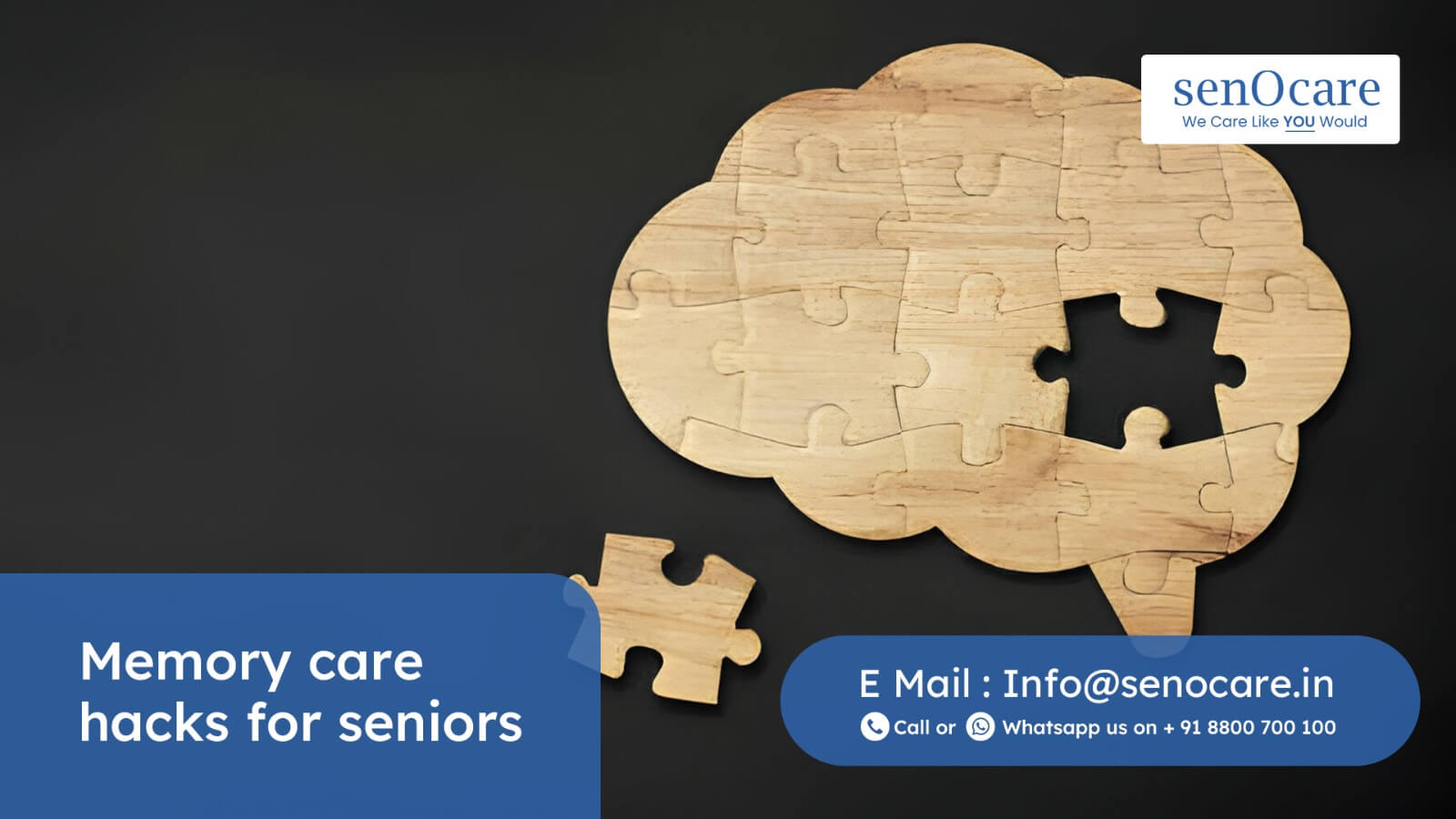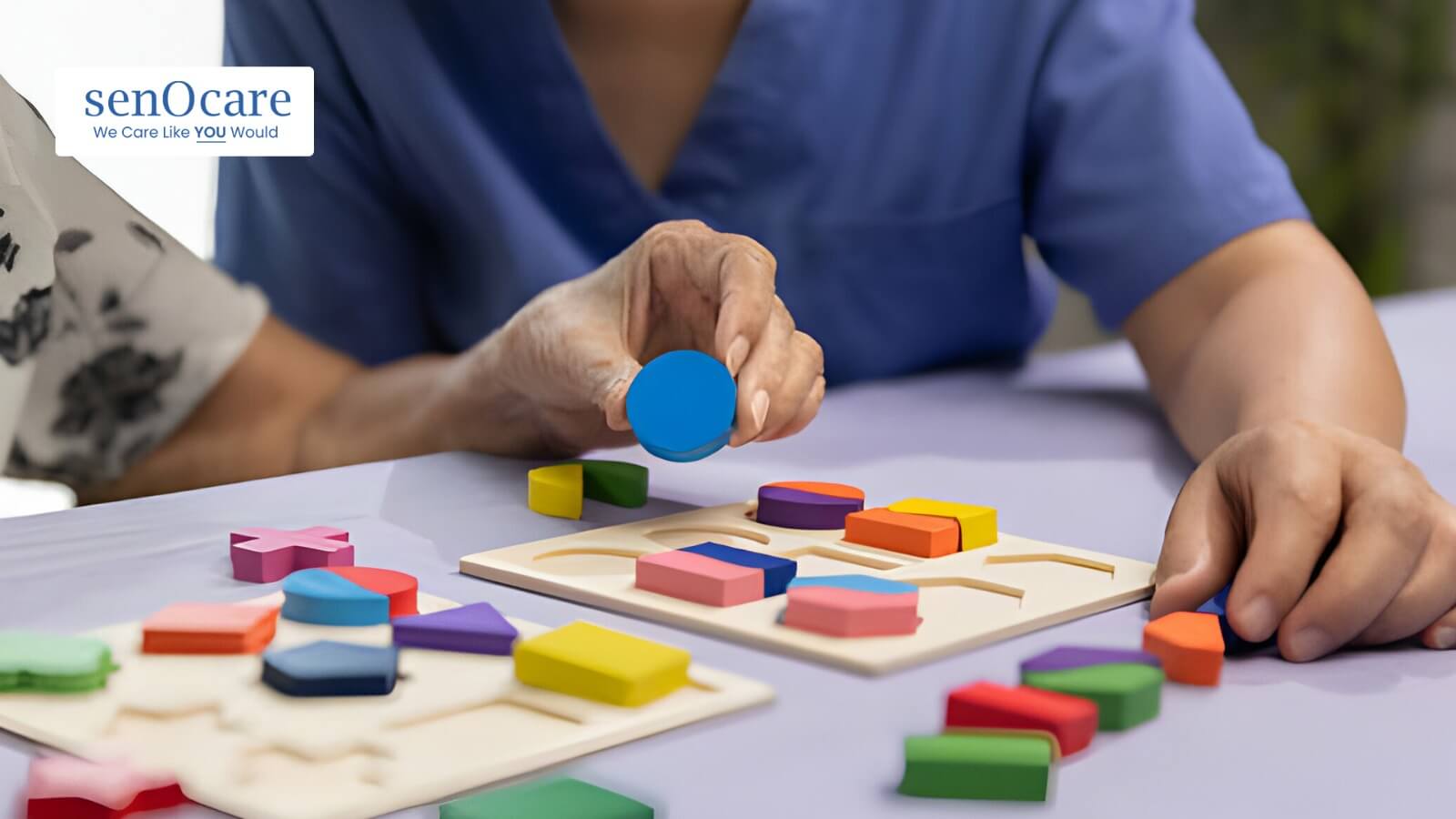Unlock the Secrets to Unforgettable Memories: Memory Care Hacks for Seniors!
Entering our 50s and 60s marks a significant phase where cognitive health becomes a crucial aspect of overall well-being. The journey towards maintaining sharp and vibrant memory function is guided by the concept of memory care. Through this article we aim to provide the readers a thorough understanding of memory changes in the elderly and strategies to improve it.

Understanding Memory Changes in Your 50s and 60s
In these decades, it’s natural for memory to undergo changes. It’s essential to acknowledge these changes, which include mild forgetfulness, while distinguishing them from potential issues that might require attention. Proactive memory care is extremely important and individuals must participate in these lifestyle adjustments to maintain their cognitive vitality .
Lifestyle Factors for Optimal Memory Function
Physical activity plays a pivotal role in cognitive health. Regular exercise (1), even in moderate forms like walking or yoga or even mild exercises , enhances blood flow to the brain, promoting optimal cognitive function. Exploring memory-boosting diets (2), rich in omega-3 fatty acids, antioxidants, and vitamins, provides the necessary nutrients for a healthy brain. Ensuring a good quality sleep is another important step as this helps with overall brain activity. Furthermore other stress management techniques and relaxation exercises help reduce the negative impact of stress on memory.
Cognitive Exercises and Brain Training
Stimulating cognitive function is like a workout for the brain. Engaging brain exercises(3) that challenge memory, such as puzzles, crosswords, and memory games along with the pursuit of activities that involve learning new skills, be it a musical instrument, a language, or a hobby help train the brain more actively. Mental activity through regular reading, writing, or engaging in creative pursuits helps to keep the brain agile and responsive.

Social Engagement and Memory Enhancement
Human connections play a vital role in cognitive health. There is s strongly positive correlation between social interactions and memory enhancement. Seniors should be encouraged to stay socially connected through participation in clubs, classes, or community events. The emotional well-being derived from these interactions not only fosters a positive mental state but also supports memory function.
Bibliography
- Mandolesi L, Polverino A, Montuori S, Foti F, Ferraioli G, Sorrentino P, Sorrentino G. Effects of Physical Exercise on Cognitive Functioning and Wellbeing: Biological and Psychological Benefits. Front Psychol. 2018 Apr 27;9:509. doi: 10.3389/fpsyg.2018.00509. PMID: 29755380; PMCID: PMC5934999.
- https://www.medicalnewstoday.com/articles/324044
- https://www.healthline.com/health/mental-health/brain-exercises
- https://www.everydayhealth.com/longevity/apps-that-may-help-improve-brain-health/